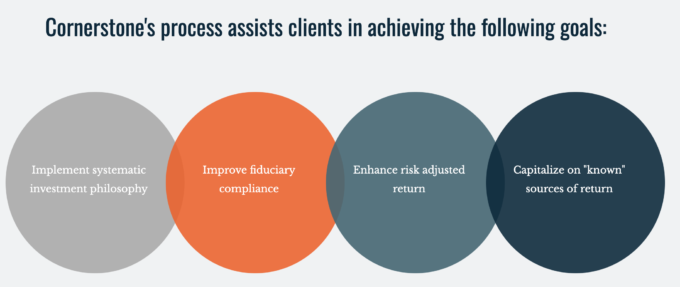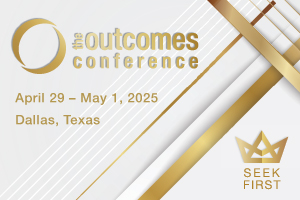
The Eleventh-Hour Epidemic By Zándra Bishop

Procrastination is a Potential Epidemic
Imagine a busy city at the peak of rush hour—streets buzzing with activity, people scurrying from building to building, and the air charged with a palpable sense of urgency. This scene mirrors the atmosphere in many organizations today, where waiting until the last minute has become a common practice.
The Draw of the Deadline
Why do so many organizations operate on the brink of deadlines, allowing projects to idle until the eleventh hour? The answer often lies in the deceptive allure of immediate pressures over long-term strategy. When day-to-day operations demand constant attention, it’s easy for leaders to slip into reactive modes, addressing only the fires that need to be put out right now. This cycle of procrastination is a silent threat, a slow poison that undermines the very fabric of a company’s potential.
The Pain Points of Procrastination
The consequences of waiting until the last minute are multifaceted. First, it creates a work environment defined by stress and burnout, where employees are in a perpetual state of high alert. This affects morale and stifles creativity and innovation, as there’s little time for reflection or thoughtful risk-taking.
Secondly, quality suffers. Rushed work is rarely one’s best work. Mistakes are more likely to occur, and there’s little opportunity for thorough review or refinement. These errors, often overlooked in the haste to meet a deadline, can lead to costly revisions or, worse, reputational damage.
Lastly, procrastination breeds a culture of instability. Strategic planning and proactive decision-making take a backseat, leaving companies vulnerable to market shifts and competitor moves. When businesses constantly play catch-up, they miss growth opportunities and lose their competitive edge.
The Risks of Racing Against Time
Waiting until the last minute is never in your favor. The risks are significant, including missed deadlines that can lead to lost clients, diminished credibility, and financial penalties. Furthermore, this approach leaves no room for the unexpected. If a crisis arises—technological failure, a supply chain disruption, or a sudden staff shortage—there’s no cushion to absorb the shock, potentially leading to catastrophic outcomes.
Resolution Through Transformation
Transforming a culture of procrastination into one of proactive planning is not an overnight fix, but it is achievable with the right mindset and strategies.
1. Prioritize and Plan: Encourage teams to prioritize tasks based on importance and urgency. Develop clear, actionable plans that outline steps, delegate responsibilities, and set realistic deadlines well in advance.
2. Foster a Forward-Thinking Culture: Cultivate an environment where employees are rewarded for thinking ahead and taking initiative. Celebrate successes from proactive efforts, and use these stories to inspire others.
3. Implement Time Management Training: Offer workshops and resources to improve time management skills across the company. Teach employees how to break down projects into manageable tasks and avoid the pitfalls of procrastination.
4. Leverage Technology: Utilize project management tools and software that provide visibility into workflows, deadlines, and progress. These systems can help keep teams aligned and accountable.
5. Build-in Buffers: Schedule project buffers to accommodate unforeseen delays or issues. This reduces stress and allows for more thoughtful work and innovation.
The shift of success, the atmosphere is one of calm determination, where employees navigate their tasks with confidence and clarity. Employees are not just cogs in a machine racing against time but innovators, strategists, and proactive thinkers contributing to a thriving business. The change is evident not only in the workplace atmosphere but also in the outcomes.
The tendency to wait until the last minute is a symptom of deeper issues within a business’s operational and cultural framework. The risk carries real consequences, from stressed employees and subpar work to missed opportunities and strategic vulnerability. However, this habit can be unlearned.
Organizations can overcome procrastination by embracing a culture of proactive planning, prioritizing tasks, investing in employee development, leveraging technology, and building buffers for the unexpected. This shift alleviates the immediate pain points and sets the stage for sustained success, resilience, and growth.
Leaders who recognize the silent threat of the eleventh-hour epidemic and take decisive steps to address it will guide their organizations to a future where deadlines are not dreaded but welcomed as achievement milestones. In this future, they don’t just survive; they thrive, setting a new standard for operational excellence and strategic foresight.
####
ZC Consulting LLC, with Zándra Bishop leading the way, brings over 20 years of experience in nonprofit, socially responsible, faith-based consulting, talent strategy solutions, leadership coaching, and retained executive search. They help reduce turnover, develop high-performing teams, create successful succession roadmaps, attract and retain high-potential talent, and empower organizations to scale confidently—transforming intentions into scalable growth.
Learn more about what Cornerstone Management has to offer you!





